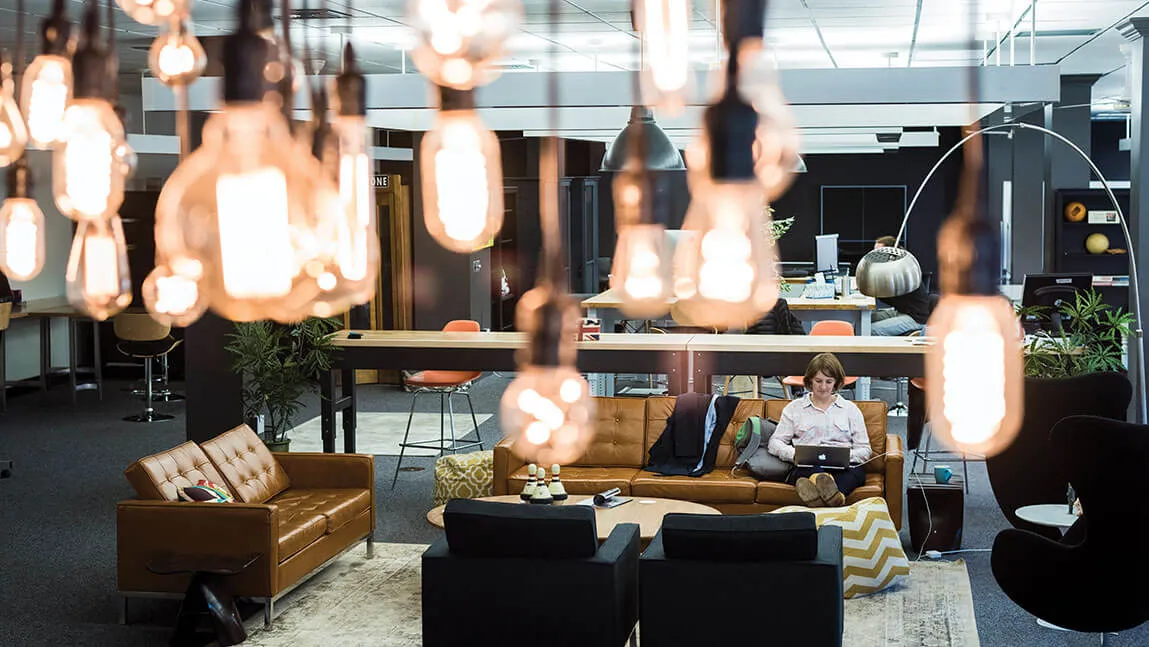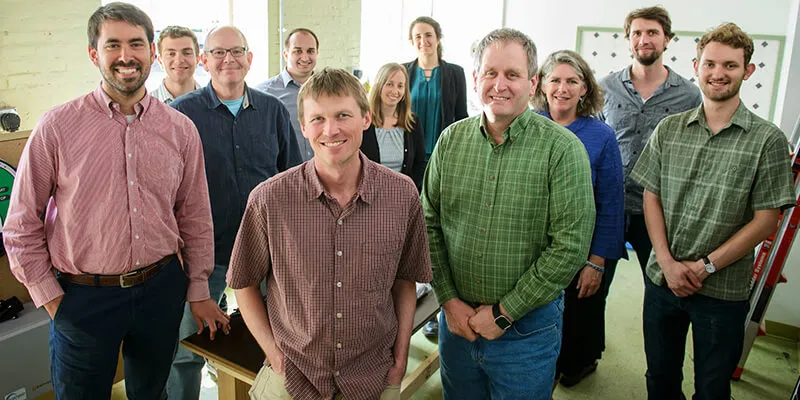In the last five years, since a New York Times story heralded Burlington’s emergence as a tech mecca, the area’s “innovation activity is five to 10 times greater,” says David Bradbury (Business, ’88), president of the Vermont Center for Emerging Technologies (VCET), the tech incubator and co-working space featured in the Times story.
“There are so many Vermont tech companies now that offer internships for our students, it’s amazing,” says Holly Fosher, career readiness program coordinator in the College of Engineering and Mathematical Sciences.
To help students make sense of Burlington’s increasingly rich tech tapestry, Fosher encourages them to join VCET, which waives membership fees for students, and to explore Hula Lakeside, a spectacular new tech incubator and co-working space that opened on the shores of Lake Champlain in 2020.
Thanks to VCET, Hula, innovations at UVM, and the influence of Vermont’s legendary entrepreneurial culture (think Ben & Jerry’s, Burton Snowboards, Seventh Generation), many tech firms in greater Burlington are startups.
The area doesn’t lack for large, established companies that offer internships to UVM students, from chip manufacturer Global Foundries to software powerhouse Dealer.com to biotech giant Agilent Technologies.
But students who want to fast-track their learning and career opportunities often choose to intern, and work, at small companies just establishing themselves, where they can perform a variety of functions, have a major impact, and create strong resume entries.
2022 UVM graduate Skylar Bagdon, vice president of business development for start-up Verde Technologies, is a case in point.
Verde has boggling potential. The company makes pliable, inexpensive, lightweight solar panels based on the groundbreaking “thin film” research of UVM Physics Chair Randy Headrick, which could accommodate many more homes and businesses than conventional rigid solar panels, enabling the company to tap a $66 billion market.
To help the company reach that vast potential, Bagdon, a self-designed sustainable technology commercialization major at UVM, wears every hat on the hat rack, meeting with lawyers, real estate developers, financial planners, grant writers, federal research labs working on solar, and manufacturers over the course of a typical few weeks.
“It’s awesome; I can’t imagine doing anything else,” says Bagdon, who has an office in the Hula complex.
When he was at UVM, the entrepreneurial Bagdon was the driving force behind the new Academic Research Commercialization, or ARC, program, which is generating even more opportunities for UVM students to intern at emerging tech companies. ARC exploits an obvious, but overlooked, source: UVM faculty innovators like Headrick, who often have brilliant research ideas that could be commercialized but lack the expertise and time to bring them to market.
Working with Corine Farewell, director of UVM Innovations, who selects the most promising faculty projects, and Erik Monsen, Steven Grossman Endowed Chair in Entrepreneurship in the Grossman School of Business, who advises the students, Bagdon and his student colleagues have attracted 17 students to ARC’s paid internship program. Students have worked with three promising faculty projects to date—Verde began as an ARC client—with three more on tap this year.
Verde hopes to follow in the footsteps of another UVM-spawned startup and Hula tenant—Benchmark Space Systems, which makes propulsion systems for satellites. Founded by UVM alumnus Ryan McDevitt (Mechanical Engineering M.S. 2011, Ph.D., 2014) in 2017, the company is growing rapidly and now employs 80, including five UVM alums who began at the company as interns.

